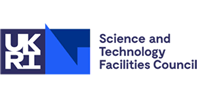Dr S Jamison
No more applications being accepted
Funded PhD Project (Students Worldwide)
About the Project
Ultrafast Lasers for Accelerator Timing
(Salary £30k + allowances)
STFC Daresbury National Laboratory and The Cockcroft Institute
The next generation of accelerators require unprecedented stability and precision in the synchronization of free-electron lasers, laser wakefields and time-resolved spectroscopy. Leading technological techniques to providing such precision is based on laser optical clocks and actively stabilised optical fibre distribution systems. These deliver better than 5 femtosecond stability and are advancing rapidly towards the attosecond regime. The Electron Beam Test Facility (EBTF) is a new accelerator with a high performance, modular injector currently being built at Daresbury Laboratory, which will deliver a capability for the cutting edge development of advanced accelerator systems.
The Accelerator Science and Technology Centre (ASTeC) at Daresbury are looking for a PhD student to join the Lasers and Diagnostics Group on developing a high stability optical synchronisation system for advanced accelerators. The PhD project will aim to develop single-shot techniques for measuring the arrival time of electron bunches and high power lasers with respect to optical clock pulses. The use of nonlinear optical materials with ultrafast response times will be targeted to achieve femtosecond level precision in determining arrival times, and the arrival time monitors will form a critical part of the optical timing system. The project will be a mixture of theoretical and experimental activities, requiring an understanding of the physics of non-linear optics and short pulse propagation, and apply this understanding to practical experimental tests. The student will be using the diverse laser systems at Daresbury Laboratory as well as having the opportunity to install and test arrival monitoring concepts on the EBTF accelerator.
Applicants should have a 2:1 or above in a physics/engineering degree or equivalent. Knowledge of the basic principles of lasers and optics is essential and some experimental experience with optics is desirable. Familiarity with modelling and instrumentation control software such as Matlab, would also be an advantage.
The successful candidate will be employed by STFC Daresbury National Laboratory and based at the Sci-Tech Daresbury Campus; they will be enrolled for a PhD at a Cockcroft Institute university, and the project will form the basis of their thesis. An overview of the research carried out by ASTeC can be found on its website, http://www.stfc.ac.uk/ASTeC
Funding Notes
This position is provided through the “LA3NET” Marie Curie Network, a European wide collaboration in laser and accelerator research. These prestigious studentships come with a very generous salary and support package. As required by the EU scheme rules:
- The successful candidate must have resided outside of the UK for the majority of the previous three years.
- The position is open to candidates of all nationalities, including those outside the EU.

 Continue with Facebook
Continue with Facebook

